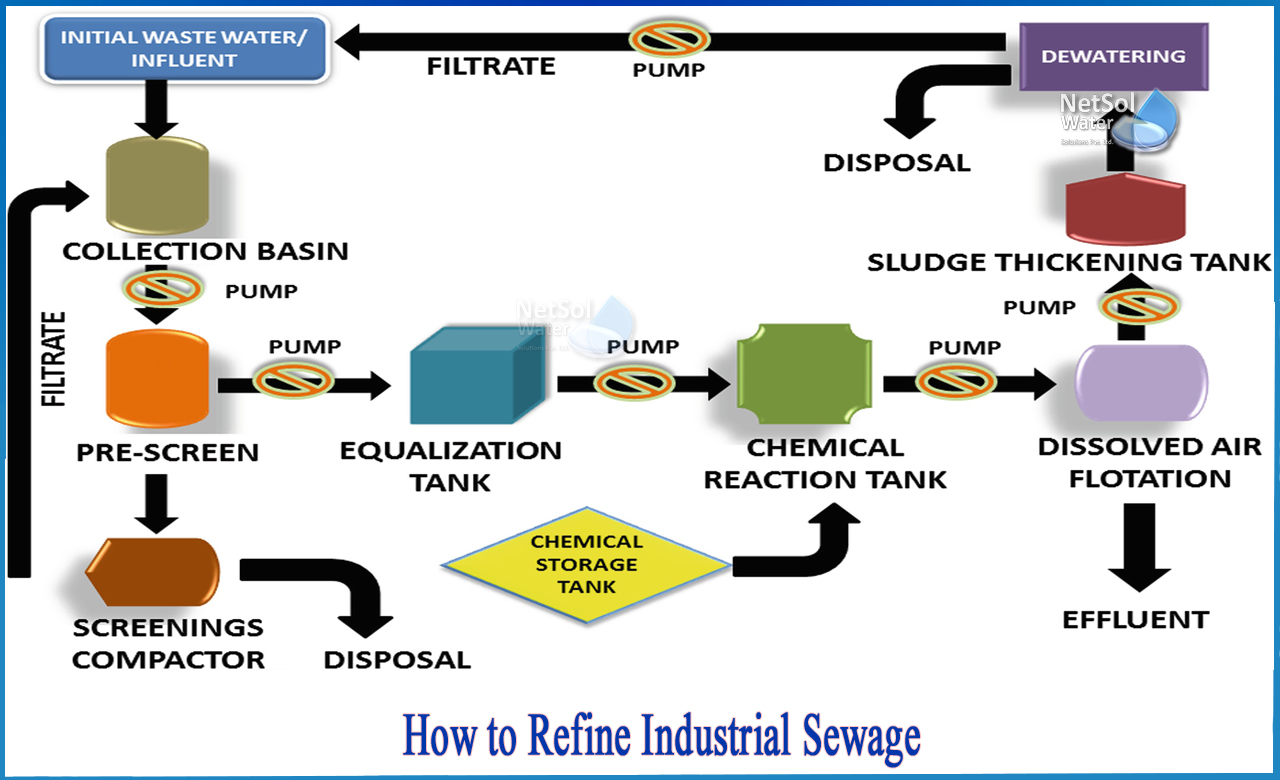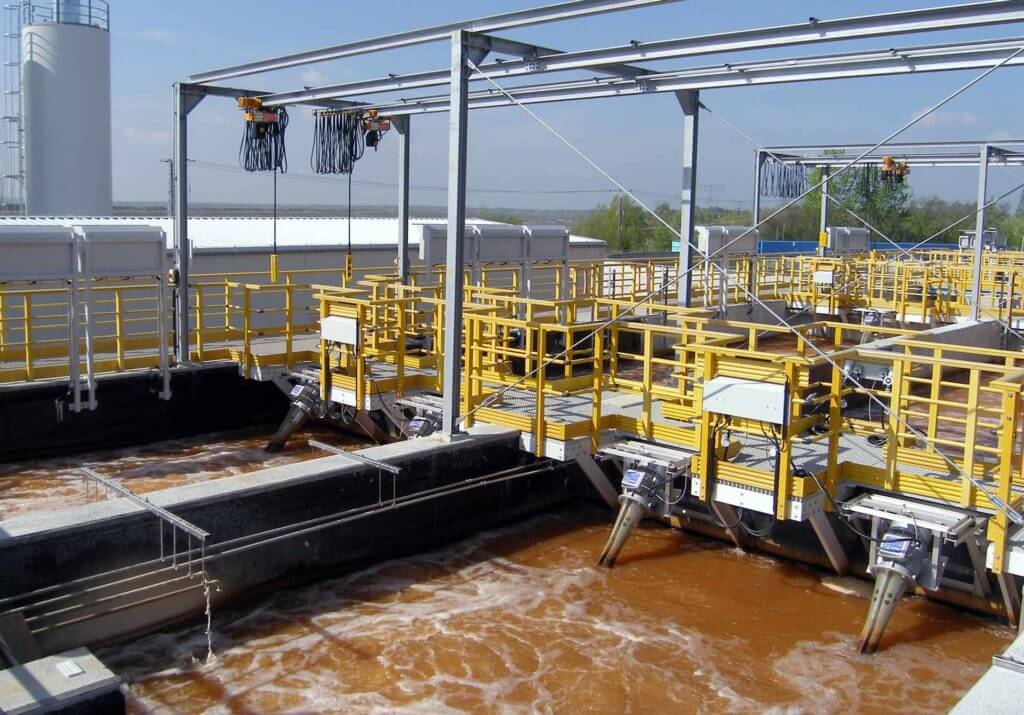Industrial Waste Water Treatment-- Eco-Friendly Solutions for Water Recycling
Industrial Waste Water Treatment-- Eco-Friendly Solutions for Water Recycling
Blog Article
Difficulties and Solutions in Industrial Waste Water Therapy
The treatment of commercial wastewater provides a diverse range of obstacles, varying from rigorous regulative compliance to the complexities of cost monitoring and technical restrictions. The variability in waste composition better makes complex the efficiency of traditional therapy techniques, commonly resulting in intensified functional expenses.
Regulatory Compliance Obstacles
How can industrial centers browse the complex landscape of regulative compliance in wastewater therapy? The regulatory framework controling wastewater monitoring is diverse, frequently differing by territory and type of market.
To effectively handle these conformity challenges, centers need to execute durable surveillance and reporting systems that guarantee real-time information collection and analysis. Regular audits and danger analyses can identify potential compliance voids, enabling for proactive modifications in therapy procedures. Staff member training programs concentrating on regulatory understanding and ideal methods are necessary to foster a culture of compliance within the company.
Furthermore, engaging with regulative firms can offer valuable insights and make clear ambiguous policies. Facilities may likewise profit from talking to ecological specialists who focus on wastewater therapy compliance, making sure that they remain abreast of evolving guidelines. By taking on these techniques, industrial centers can not only satisfy conformity requirements but likewise boost their operational performance and environmental stewardship.
Cost and Economic Obstacles
Browsing regulatory conformity in wastewater treatment often provides significant monetary difficulties for commercial facilities. The costs connected with applying necessary treatment innovations, preserving conformity with rigorous laws, and managing operational expenses can be intimidating. Many companies deal with high preliminary capital investment for the building or updating of wastewater treatment plants, which may strain budget plans, particularly for medium-sized and little business.
Moreover, continuous operational costs, consisting of upkeep, labor, and chemical inputs, contribute to the financial worry. The changability of rising and fall power costs and the prospective need for additional financial investments to satisfy progressing policies exacerbate these financial stress. Oftentimes, the lack of economic motivations or support from government bodies makes it much more tough for services to justify investments in innovative treatment systems.
Additionally, the economic stability of wastewater therapy services is often examined, especially for industries with limited profit margins. Therefore, it is critical for commercial facilities to discover affordable strategies, such as taking on cutting-edge funding choices, participating in partnerships, and leveraging arising innovations that can aid alleviate these financial obstacles while ensuring conformity with environmental requirements.

Technical Limitations
Countless technical limitations hinder the performance of commercial wastewater therapy processes. One significant obstacle is the insufficiency of existing treatment technologies to attend to complicated pollutants. Many standard techniques, such as activated sludge and chemical rainfall, struggle with the removal of arising toxins, including microplastics and pharmaceuticals. This limitation usually leads to the discharge of inadequately treated water, which can have detrimental ecological impacts.
Additionally, the scalability of therapy technologies positions an obstacle. While some sophisticated approaches, like membrane filtering or innovative oxidation, show assurance in controlled atmospheres, their execution on a larger scale can be much too expensive and technically difficult. Maintenance and operational complexities better complicate the adoption of these systems, specifically for smaller sized industries with limited technical expertise.
The integration of real-time tracking modern technologies also stays inadequate in lots of therapy centers. Without effective monitoring find out systems, operators can not effectively assess treatment efficiency or discover prospective failings, causing irregular effluent top quality. Attending to these technological limitations through research and growth, along with financial investment in ingenious solutions, is essential for improving the effectiveness of commercial wastewater treatment and making certain regulatory compliance.
Irregularity in Waste Structure
In the realm of industrial wastewater therapy, the irregularity in waste structure presents a formidable challenge. Industries create wastewater with varied qualities, affected by aspects such as production processes, raw materials, and operational practices. This diversification complicates the treatment procedure, as traditional systems frequently struggle to successfully attend to the variety of contaminants present.
As an example, wastewater from food processing may include high degrees of raw material, while effluents from chemical manufacturing can include hazardous materials and hefty metals. This variance requires versatile treatment techniques to guarantee conformity with environmental laws and safeguard public wellness. Additionally, variations in waste composition can occur over time, influenced by adjustments in production routines, upkeep activities, or the introduction of brand-new products.

Cutting-edge Treatment Solutions
Cutting-edge treatment remedies are vital for resolving the complexities of commercial wastewater management. Standard approaches frequently drop short in successfully getting rid of a vast array of contaminants, especially in centers with varied effluent streams. Recent developments concentrate on integrating advanced modern technologies to enhance treatment effectiveness and sustainability.
One encouraging approach is the use of sophisticated oxidation procedures (AOPs), which leverage powerful oxidants to deteriorate natural contaminants. AOPs, including photocatalysis and ozonation, can considerably minimize hazardous compounds and directory enhance effluent quality. In addition, membrane layer bioreactor (MBR) innovation has actually gained grip, integrating organic treatment with membrane layer filtering, leading to top quality effluent and lowered footprint.
One more innovative remedy is the execution of resource recuperation systems. Techniques like anaerobic digestion not only deal with wastewater yet additionally create biogas, which can be harnessed as a renewable resource source. The adoption of synthetic knowledge and machine learning designs can maximize treatment procedures by anticipating variations in wastewater structure, thereby enhancing functional effectiveness.
These ingenious solutions not just address regulative compliance yet additionally promote ecological sustainability, leading the way for a more resistant and effective industrial ecosystem.
Verdict
In final thought, attending to the difficulties of industrial wastewater treatment requires a diverse technique Discover More Here that incorporates governing conformity, cost management, and technological improvements. A dedication to continual renovation in therapy methodologies will ultimately contribute to the effective management of industrial wastewater and environmental security.
The treatment of industrial wastewater provides a multifaceted range of difficulties, ranging from strict regulative compliance to the complexities of expense management and technological limitations. Industrial Waste Water Treatment.Browsing governing conformity in wastewater therapy typically offers significant monetary challenges for industrial centers. Resolving these technical restrictions through research and development, alongside financial investment in cutting-edge options, is vital for improving the efficacy of commercial wastewater therapy and guaranteeing regulative compliance
Wastewater therapy facilities should spend in durable monitoring systems and flexible therapy technologies qualified of suiting differing influent qualities.In conclusion, resolving the difficulties of industrial wastewater therapy requires a complex technique that integrates regulatory conformity, price management, and technical innovations.
Report this page